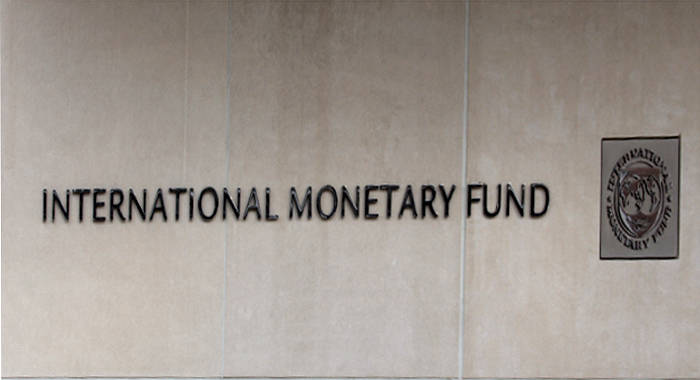A strong macroeconomic framework is essential to optimise the impact of large infrastructure projects, improve competitiveness and boost sustainable growth in St. Vincent and the Grenadines, the International Monetary Fund said on Monday.
The large infrastructure projects the IMF mentioned are the EC$729 million Argyle international airport expected to be completed this year and the US$80 million geothermal energy project, scheduled to come on stream in 2018.
The IMF’s observations came after its staff mission, led by Dominique Simard, visited SVG from Feb. 22 to March 3 to conduct discussions for the 2016 Article IV Consultation.
The conclusion came even as the IMF team said the Government has contributed to improving poverty indicators since 2000 and is pursuing “game-changing projects”, such as the airport and geothermal energy project.
The IMF said that key elements of this macroeconomic strategy should include credible and sustainable medium-term fiscal consolidation; reforms to buttress the financial sector; and policies to improve the business environment and build climate resilience.”
Economic activity is picking up and is expected to be further sustained by the operations of the airport, the IMF.
The airport has been under construction for more than seven years and has missed completion targets annually since 2011.
Prime Minister Ralph Gonsalves told Parliament in February that the completion of the airport is “imminent”, and head of the Tourism Authority, Glen Beache, said on radio last week that the latest completion date he has been given is August 2016.
In terms of economic performance, the IMF said that real gross domestic product (GDP) growth is estimated at 1.6 per cent in 2015.
The IMF said this was led by recovering tourism inflows, construction and agriculture.
GDP growth is projected to reach 2.2 per cent in 2016, spurred by investment in anticipation of the new airport, which is expected to boost tourist arrivals and agriculture exports through expanded airlift capacity and direct routes to main source markets.
“The recovery of tourism and lower oil prices — which also contributed to maintaining low inflation — have narrowed the current account deficit in 2015,” the IMF said.
It said the fiscal position improved due to expenditure restraint while tax collections were generally good, particularly for customs duties with the increase in the customs service charge.
The IMF said that the measures announced in the 2016 budget are expected to improve the primary balance relative to 2015 but leave the overall fiscal position unchanged.
The EC$912 million budget which Parliament approved two weeks ago includes a new 2 per cent tax on cellphone calls and value-added tax on s number of items, including salt, butter, baking powder, and yeast.
The IMF said the Budget ”provides for tax policy measures expected to yield 0.7 per cent of GDP, including broadening the VAT base, raising excises on alcoholic and sweet beverages, and raising the automobile surcharge and drivers’ license fees.
“Concerning expenditure, among other things, the budget provides for a general salary increase of 1.5 per cent for civil servants, additional funds for health services, operating the new airport, and the government’s equity investment in the geothermal project.”
It said that while the primary balance projected for 2016 is 0.4 per cent of GDP, higher than the 0.1 per cent of GDP outturn in 2015, the projected overall deficit remains unchanged at 2.1 per cent of GDP due to higher expected interest payments.
The 2016 Budget includes a deficit of EC$151 million for 2016, and projections of EC$168 million and EC$205 million in deficit for 2017 and 2018.
The IMF said: “Assuming no additional measures, and increasing the tax to GDP ratio beyond its 2016 level to reflect the whole year impact of the 2016 revenue measures, the central government’s primary balance would reach a surplus of 1.6 per cent of GDP in 2019.
During their visit to SVG, the IMF team met with Gonsalves, Leader of the Opposition, Arnhim Eustace, the Director General of the Ministry of Finance, other senior government officials, public and private sector labour unions, and a broad range of private sector representatives.







The new set of VAT might just make sure that the tax to GDP ratio hits the target and that the primary balance will approach the projected 1.6% surplus of GDP down the road. All of this assumes that large scale and big-ticket thiefing…oops, sorry, I mean big-ticket spending is kept to a minimum. Pray consumer spending remains constant or increases. What are the odds?
1. The IMF also said that “St. Vincent and the Grenadines hiring costs relative to labor productivity are among the highest in the region” meaning our employed people, in and out of government, are underworked and overpaid. What a revelation!
2. The August 2016 airport completion date must be a typo: shouldn’t it have read August 2017 instead. (And isn’t the August 2016 date another delay from the promised April 2016 date?)
3. The phrase “tax collections were generally good, particularly for customs duties” should read “tax collections were generally good, only for customs duties because thousands of people are not paying or charging VAT (e.g., the hundreds of street vendors) and thousands are evading or lowballing income or business taxes because of wilful slackness of the government in this area.”